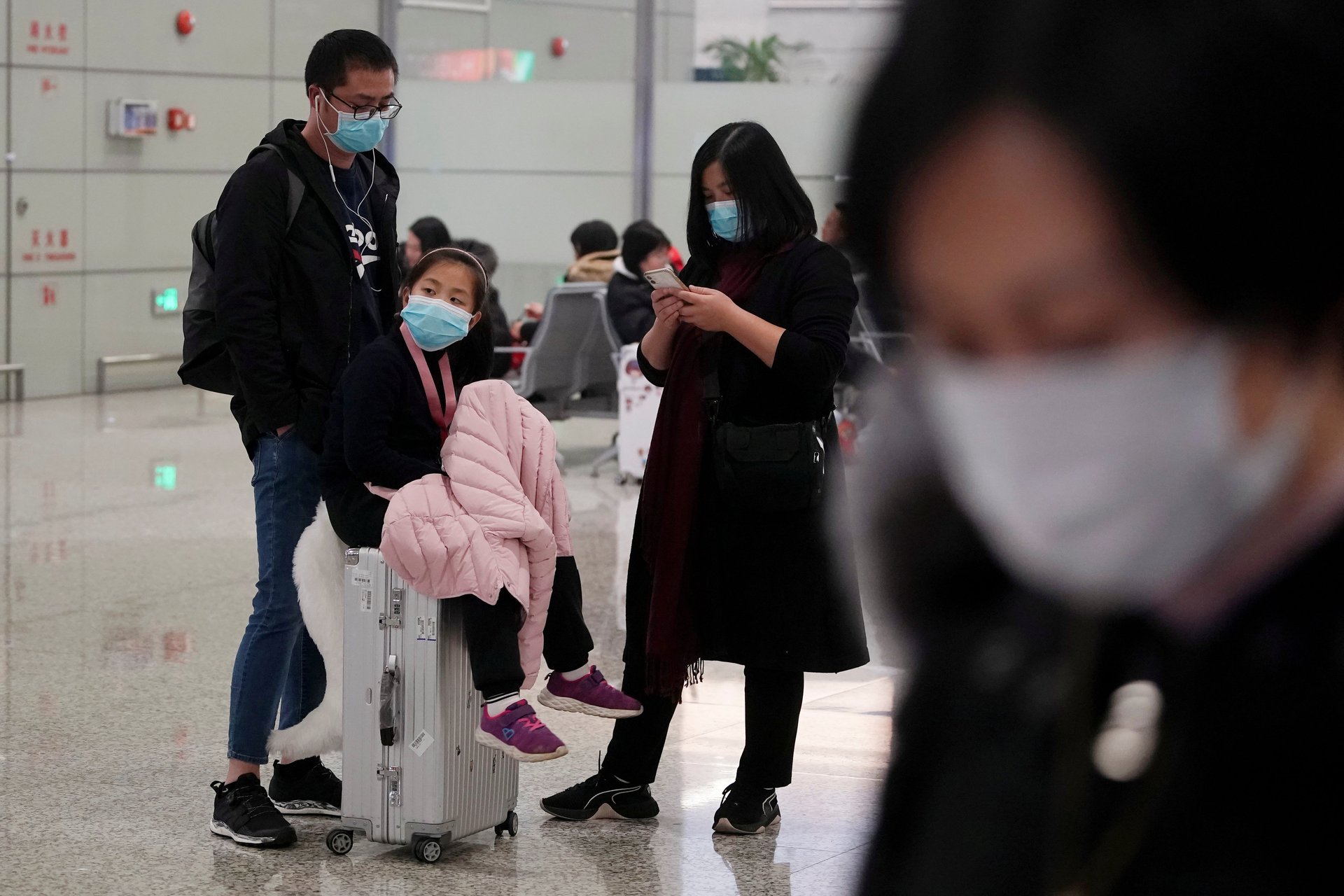China’s coronavirus outbreak couldn’t have come at a worse time: Lunar New Year
The outbreak of a mysterious virus in China has infected hundreds and killed nine. The exact source has yet to be determined, human-to-human transmission has been confirmed, and Chinese health authorities say the virus has mutated and will likely spread further.


The outbreak of a mysterious virus in China has infected hundreds and killed nine. The exact source has yet to be determined, human-to-human transmission has been confirmed, and Chinese health authorities say the virus has mutated and will likely spread further.
Now add to that China’s busiest travel season, as hundreds of millions are expected to criss-cross the country to get home for Lunar New Year family reunions kicking off this week—New Year’s Eve falls on Friday, Jan. 24—and millions more making trips abroad. Nearly 120 million railway trips have already been made from Jan. 10 to 19, according to the transport ministry, a 20% increase compared to last year. But such a large-scale migration of people at a time of a virus outbreak will likely spread the disease further, both within China and beyond. Cases have already shown up in Thailand, Japan, South Korea, Taiwan, and the United States.
“Four hundred million people going home for Chinese New Year is certainly going to potentially complicate the control of this outbreak,” said Allen Cheng, a professor of infectious diseases epidemiology at Monash University in Australia. And though train stations and airports have set up mechanisms like temperature checks, he added, “evidence suggest that entry screening isn’t very effective at identifying people with new viruses.”
Around the world, airports have stepped up screening measures. But the fact that the symptoms of the new coronavirus seem to be relatively mild—fever, cough, tightness of the chest, and difficulty with breathing—is “paradoxically more worrying” because it allows people to travel further before their symptoms are detected, Antoine Flahault, director of the Institute of Global Health at the University of Geneva, told Agence France-Presse. China’s health commission at a press conference on Wednesday warned that the virus is still evolving.
The new virus belongs to the same family as the SARS virus that hit mainland China and Hong Kong hard in 2003, leading to nearly 800 deaths, but scientists who have sequenced the current strain say it is quite distant from that virus.
Chinese health officials have urged people to limit travel, though they have stopped short of enforcing actual blanket travel bans. They have also asked people to limit public gatherings. In Wuhan, the capital of Hubei province and the epicenter of the outbreak, officials have prohibited outbound tour groups from departing the city, and private cars coming in and out of the city are to be checked for wildlife and live poultry, according to state news outlet People’s Daily.
Some people have cancelled their Lunar New Year family reunions altogether. “I made the decision after seeing the spike in the number of confirmed coronavirus cases in Wuhan over the weekend,” said Carol Huang, a Hong Kong-based financial reporter from Wuhan. “My mother called me three times asking me to cancel the flight, and all of my family’s spring festival gatherings have been cancelled.”
Travel and hotel stocks have plummeted in reaction to the news. Hong Kong-listed Air China has slumped almost 7.5% since Monday, while New York-listed Chinese travel services company Trip.com dove almost 8%. Huazhu, the New York-listed Chinese hotel management company, sank more than 10%.
The outbreak at peak season for the travel, retail, and catering industries could deal another blow to an economy already contending with slowing economic growth, and food price inflation due to the spread of African swine fever among pigs last year. Lunar New Year holiday spending, which has seen its growth tapering, nevertheless hit $150 billion in 2019 for the seven-day period people typically take off.